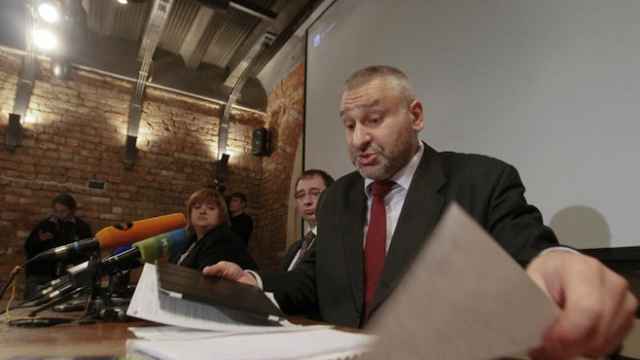BRUSSELS — The European Union has demanded that Moscow release immediately an Estonian security officer who Estonia says was abducted on the border and taken into Russia last week.
Russia's Federal Security Service, or FSB, successor to the Soviet KGB, said last Friday that an Estonian officer, identified as Eston Kokhver, had been detained on Russian territory and was being investigated as a suspected spy.
The incident comes at a time of high tension between the EU and Russia over Moscow's involvement in the Ukrainian war.
Estonia and other former Soviet republics in the Baltics, which now belong to both the EU and NATO, have called on both organizations to take a tough stance towards Russia over its actions in Ukraine.
"We are concerned by the abduction on Sept. 5 of Estonian police officer Eston Kokhver by the Russian security services on Estonian territory near the Estonian-Russian border," an EU spokesman Thursday said in a statement.
"Such action by the Russian Federation runs against international law and the principle of inviolability of borders."
"The EU delegation in Moscow has been in contact with the Russian authorities asking for a swift resolution to the matter. We call for an immediate release of Mr. Kokhver and his safe return to Estonia," the spokesman said.
Estonia said Kokhver was abducted as he tried to stop illegal activity on the border. In recent years, the border has seen a number of incidents involving the smuggling of goods, weapons and migrants.
Russia's FSB said Kokhver had been carrying a Taurus handgun with ammunition, 5,000 euros in cash, special equipment for concealed audio recording and documents that "bear evidence of an intelligence mission."
Russian President Vladimir Putin's declaration in March that he had the right to invade Ukraine to protect Russian speakers there caused alarm in Estonia and Latvia, which have large ethnic Russian minorities.
A Message from The Moscow Times:
Dear readers,
We are facing unprecedented challenges. Russia's Prosecutor General's Office has designated The Moscow Times as an "undesirable" organization, criminalizing our work and putting our staff at risk of prosecution. This follows our earlier unjust labeling as a "foreign agent."
These actions are direct attempts to silence independent journalism in Russia. The authorities claim our work "discredits the decisions of the Russian leadership." We see things differently: we strive to provide accurate, unbiased reporting on Russia.
We, the journalists of The Moscow Times, refuse to be silenced. But to continue our work, we need your help.
Your support, no matter how small, makes a world of difference. If you can, please support us monthly starting from just $2. It's quick to set up, and every contribution makes a significant impact.
By supporting The Moscow Times, you're defending open, independent journalism in the face of repression. Thank you for standing with us.
Remind me later.





